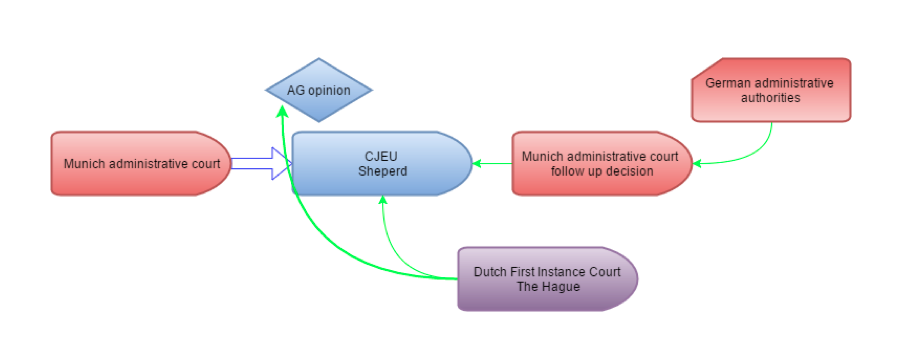The Netherlands, Court of first instance of the Hague, Middelburg branch, Judgment of 11 August 2015
- Court of first Instance of the Hague, Middelburg branch (Rechtbank Den Haag, zittingplaats Middelburg), Judgment of 11 August 2015, application no. 15/14286, ECLI:NL:RBZWB:2015:5370
A man from Ukraine fled because he does not want to serve in the Ukrainian army given the recent surge in the east of the country. He applied for asylum on the basis of being a conscientious objector, because he does not want to be forced to take up arms against his own people. Before he left Ukraine, representatives of the army tried to serve him with a military notice, which he avoided. His application was denied. Although the Dutch authorities believed that he could be called in for military service if he returned to Ukraine, it took the view that this would not necessarily be the case. Therefore the authorities considered he did not fill the conditions for obtaining refugee status, without however looking having to look at the requirements for conscientious objectors and the Shepherd case.

The ruling of the Dutch First Instance Court of Hague is a reflection of CJEU reasoning in Shepherd (Case C-472/13) at the national level. The first court consistently interpetes both the CJEU ruling as well as the Advocate General's (AG) Opinion and applies the principles enshrined by the EU Court to the case at hand.
- Article 4 - Prohibition of torture ans inhuman or degrading treatment or punishment
- Article 10 - Freedom of thought, conscience and religion
- Article 19 - Protection in the event of removal, expulsion or extradition
Role of the Charter:
Following the Charter based rationale of the AG, the national court referred to Article 10 paragraph 2 of the EU Charter, in which the right to conscientious objection is recognised in accordance with the national laws governing the exercise of this right, sharing also its broad definition of ‘conscientious objector’. However the AG and also the national court went beyond the limited wording of the Charter and gave extensive meaning to the conscientious objector within the particular context of recognition of refugee status by considering both absolute and partial objectors as eligible for refugee status. This case also relates to Article 4 of the EU Charter, namely whether a conscientious objector will, upon return, be subjected to torture or to inhuman or degrading treatment or punishment.
- Case C-472/13, Shepherd, Judgement of 20 February 2015, ECLI:EU:C:2015:117
Before the Shepherd judgment of the CJEU, Dutch law required for a conscientious objector to be regarded as a refugee that one of the following conditions is met:
- The person concerned has a well-founded fear for disproportionate or discriminatory punishment because of his objection or desertion based on one of the grounds mentioned in Article 1A of the Refugee Convention;
- The person concerned is a conscientious objector because of his religious or other convictions which have led to his objection or desertion, whilst there was no opportunity to fulfil a non-military service instead;
- The person concerned has refused to take part in a military action which has been condemned by the international community as incompatible with the fundamental norms of humane conduct or conduct during an armed conflict. This also applies when the person concerned has a well-founded fear of having to fight against his own people or family.
Following the Shepherd-ruling, the Dutch authorities changed the policy described above. Currently, the armed conflict no longer needs to be condemned by the international community if the military forces in question have been, are or will most likely be involved in war crimes. It is up to the person concerned to prove this. The legal issue at hand is whether the amended policy and the burden of proof is compatible with the Shepherd ruling of the CJEU.
Relevant Judicial Dialogue Techniques

